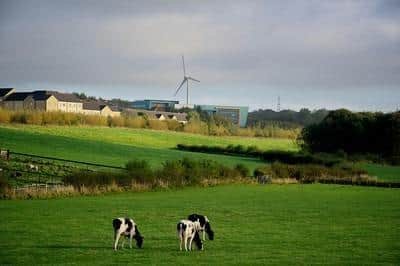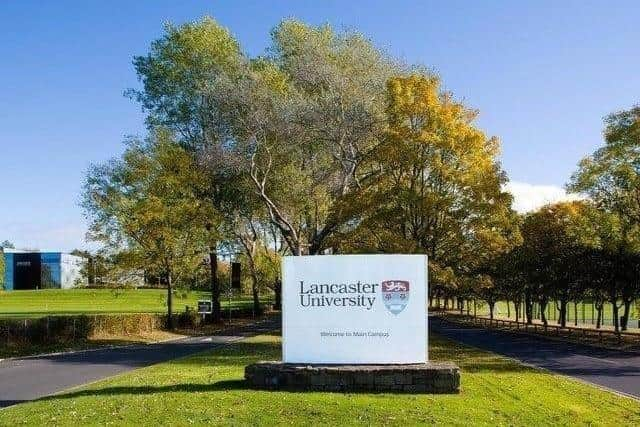Lancashire university’s ground-breaking Low Carbon Eco-Innovatory helps world-beating theatre troupe turn crisis into opportunity
and live on Freeview channel 276
To that end, a leading Lancashire university has been helping one of the country’s top performing arts institutions prepare for the world of tomorrow.
A ground-breaking environmentally-friendly tech programme, Lancaster University’s Low Carbon Eco-Innovatory (LCEI) has been assisting Wired Aerial Theatre, famous for its pioneering approach to theatre and dance, rebuild after Covid, assisting in the sustainable delivery of its unique show. The mantra is turning crisis into opportunity.
Advertisement
Hide AdAdvertisement
Hide AdFounded some 20 years ago by Wendy Hesketh-Ogilvie and Jamie Ogilvie, Wired is world-famous for its aerial performances, which fuse contemporary dance, physical theatre, gymnastics, and climbing. The company has world with some of the planet’s biggest acts, including the likes of Lady Gaga, Pink, and The Chemical Brothers.


“Covid was a massive setback for us,” says Jamie Ogilvie, Wired’s technical director. “Without any income and an uncertain future, our core funding couldn’t sustain us. We had to make some difficult decisions, but we survived and it’s given us the opportunity to reset as an organisation. While things are starting to return to a level of normality again, we cannot go back to the way things were.”
Providing a springboard for sustainable recovery, LCEI has focused on the carbon footprint left by the performing arts sector, helping Wired reduce emissions through renewable energy use, LED lighting, insulation, a shift from hotels to more sustainable accommodation like home-rentals, and through a review of staff transport options.
With LCEI’s help, Wired - one of 24 companies which have collaborated with Lancaster University through LCEI, saving more than 170 tonnes of greenhouse gases - has reduced energy use by 94%. This new low-carbon approach has also been tested by its recent revival of Me v Me, a show focused on mental health.
Advertisement
Hide AdAdvertisement
Hide Ad“We redesigned Me v Me to be an extremely self-sufficient production where everything, from the production equipment and lighting to the costumes and staff, fit into one vehicle,” explains Jamie. “Everyone bought into it: the new approach was simple, cost-effective, had a positive impact, and resulted in a successful show. It’s a great starting point.”


Carolyn Hayes, the LCEI Project Manager at Lancaster University, says the main issue for companies is a lack of resources to ‘devote to starting their net zero journey,’ which is where LCEI comes in.
“Our programme is helping businesses to rethink their carbon footprint and energy consumption, and encourage them to be prepared for situations like our current energy crisis,” explains Carolyn. “The LCEI programme is offering access to the skills and expertise of undergraduates, postgraduates, and world-renowned academics, leveraging our plethora of world-class facilities to identify a bespoke course of action.
“Our fully-funded short-term projects are designed to deliver quick turnaround support for an organisation, enabling them to understand their current position and proposing some viable suggestions for ways it can improve and do things differently,” she adds. “In many cases, activities to reduce emissions can also reduce costs and overheads.”
Sustainable, future-looking, and still world-class: with the help of LCEI, Wired are set for many standing ovations to come.